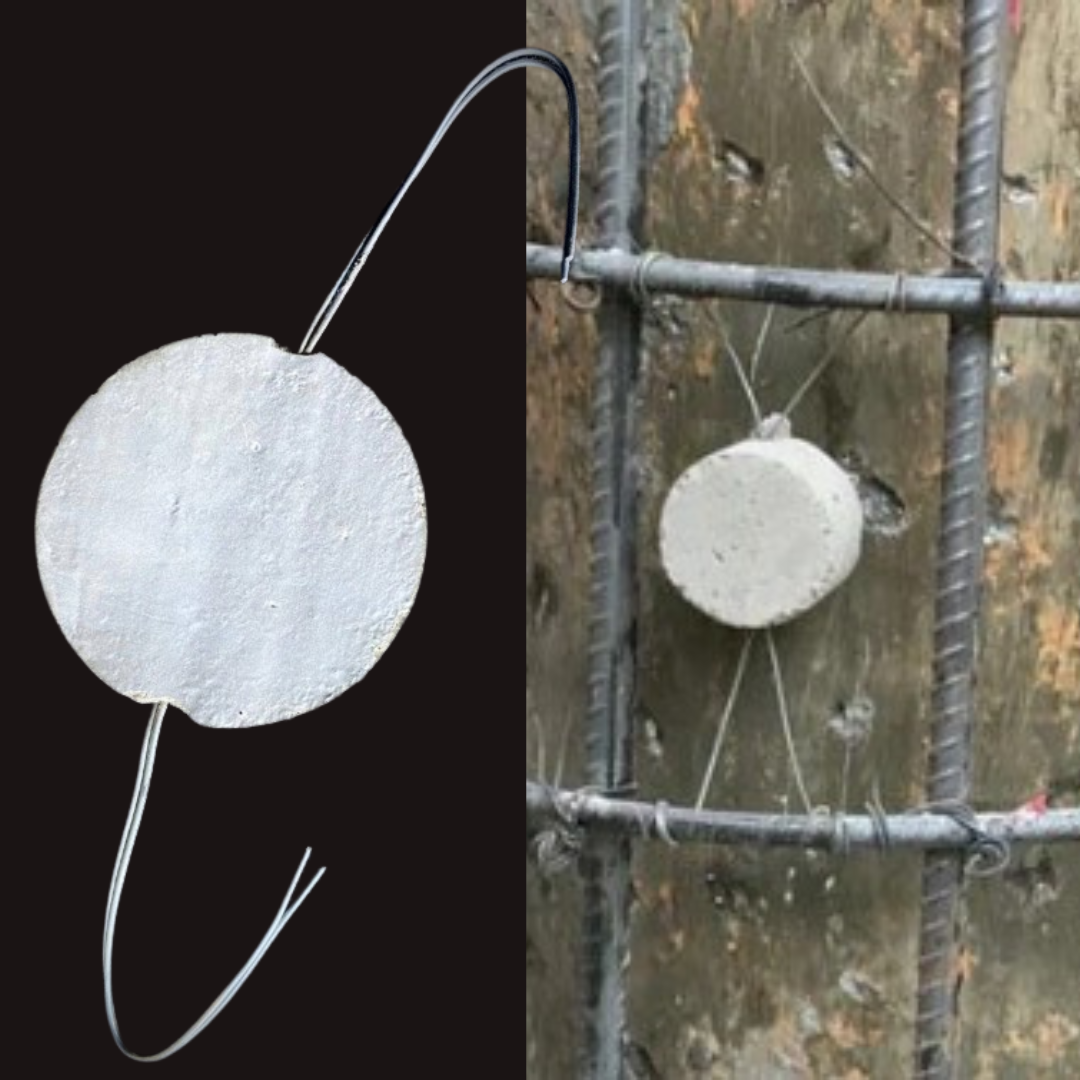Introduction
Reinforced concrete structures face significant challenges from corrosion, specifically in harsh environments. Over time, exposure to moisture, chlorides, and aggressive elements accelerates the corrosion of embedded steel reinforcements. This leads to structural degradation, reduced lifespan, and increased maintenance costs. Zinc concrete anodes have emerged as a groundbreaking solution to fight those problems through cathodic protection. This innovative technology helps extend the life of the concrete structures while reducing long-term repair costs.
What Are Zinc Concrete Anodes?
Zinc concrete anodes are specifically designed sacrificial anodes embedded in concrete to offer safety to metal reinforcements. These anodes include zinc metal forged into a cementitious matrix. When installed in concrete, the zinc acts as a sacrificial element, corroding in the place of the steel reinforcement. This method forms the basis of sacrificial anode cathodic protection,, in which the zinc anode corrodes preferentially, thereby protecting the steel from corrosion.
How Zinc Concrete Anodes Provide Cathodic Protection
Cathodic protection works by changing the steel reinforcement from an anode to a cathode. When zinc concrete anodes are set up, they create an electrochemical reaction where zinc rather than the steel. This sacrificial action prevents the formation of rust on the steel surface. The zinc anode releases electrons, which flow to the steel, neutralizing the corrosion process. This method guarantees long-term structural integrity and enhanced durability of the concrete.
Mechanism of Zinc Anode Protection
- Galvanic Action: Zinc has a higher electrochemical potential than steel.
- Electron Flow: Zinc anodes release electrons that travel to the steel reinforcement.
- Corrosion Prevention: The steel surface becomes a cathode, preventing it from corroding.
- Sacrificial Nature: Zinc anodes continue corroding until consumed, protecting the steel.
Uses of Sacrificial Zinc Concrete Anodes
The sacrificial zinc concrete anodes application extends across various industries and infrastructure projects. Their ability to provide reliable cathodic corrosion protection makes them ideal for:
1. Bridges and Highways
Concrete bridges and highways are constantly exposed to moisture, road salts, and environmental pollution. Zinc concrete anodes assist in protecting the embedded steel reinforcement, ensuring longer service life and reduced maintenance costs.
2. Marine Structures
Ports, piers, and offshore platforms face severe corrosion because of saltwater exposure. Zinc concrete anodes provide effective protection by sacrificing themselves to prevent steel corrosion.
3. Industrial Facilities
Chemical plants and business structures are exposed to aggressive chemicals and high humidity. Sacrificial zinc concrete anodes offer reliable cathodic protection against corrosion in such harsh environments.
4. Historic and Monumental Structures
Preserving the integrity of historic concrete systems is tough. Zinc anode protection offers a non-invasive method to extend their lifespan without altering their unique layout.
Benefits of Zinc Concrete Anodes
1. Extended Service Life
Zinc concrete anodes significantly reduce the rate of steel reinforcement corrosion. This leads to more suitable durability and a longer lifespan for concrete systems.
2. Cost-Effective Maintenance
By preventing structural damage, zinc anodes reduce the need for costly maintenance and downtime. This translates to substantial savings over the life cycle of the structure.
3. Easy Installation and Maintenance
Zinc concrete anodes are designed for easy set-up in present systems. They require minimum preservation and provide continuous protection once installed.
4. Eco-Friendly Solution
Zinc anodes are non-toxic and environmentally safe. They protect without releasing harmful by-products into the environment.
5. Adaptability to Various Conditions
Zinc concrete anodes work effectively in an extensive range of environmental situations, along with marine, industrial, and urban settings.
Challenges and Limitations
1. Consumption Over Time
Since zinc concrete anodes are sacrificial, they gradually degrade over time. Regular monitoring is essential to ensure continued protection.
2. Initial Installation Costs
Although the initial cost of installing in zinc concrete anodes can be high, the long-term benefits outweigh the investment.
3. Compatibility Issues
Zinc anodes won’t be suitable for all styles of concrete or environmental conditions. Proper evaluation is required before setup.
Future of Zinc Concrete Anodes
The development of advanced zinc alloys and improved concrete formulations promises to enhance the performance of zinc concrete anodes. Researchers are working to increase the lifespan of zinc anodes and improve their effectiveness in highly corrosive environments. Smart monitoring systems are also being integrated to track the health of zinc anodes and provide real-time data on structural integrity.
Conclusion
Zinc concrete anodes have revolutionized the way reinforced concrete structures are protected against corrosion. By employing the principles of sacrificial anode cathodic protection, they provide a reliable option to combat steel reinforcement corrosion. Their applications in bridges, marine structures, and industrial facilities underscore their versatility and effectiveness. As advancements in zinc anode technology continue, reinforced concrete structures will benefit from improved longevity and durability. Investing in zinc anode protection ensures the structural integrity of concrete infrastructure for decades to come.



